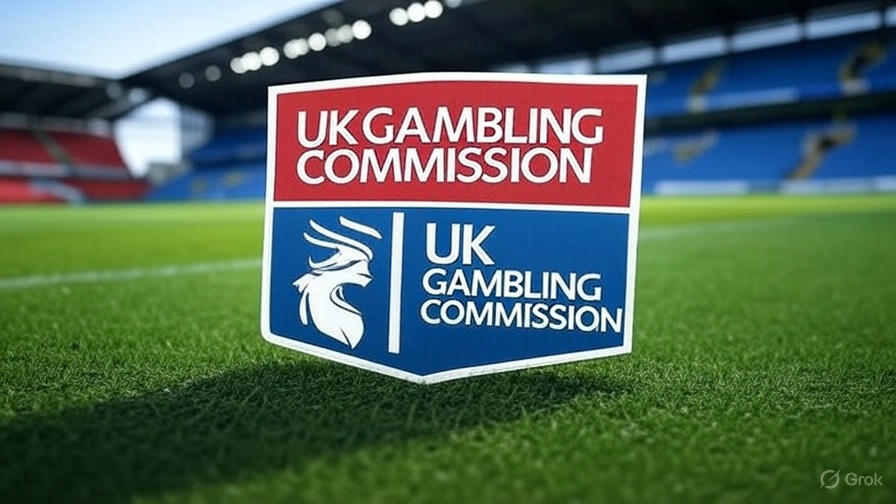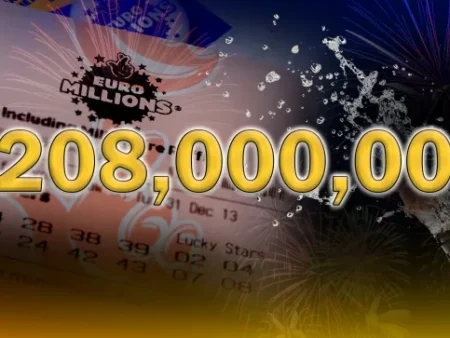
In a significant move to protect UK consumers and uphold the integrity of the gambling industry, the UK Gambling Commission (UKGC) has launched a high-profile crackdown on unlicensed casino operators sponsoring Premier League clubs. On May 26, 2025, the UKGC issued formal warnings to several Premier League teams, revealing that two unnamed clubs are promoting gambling websites that illegally accept UK customers without valid licences. This revelation has sparked widespread concern across the football and gambling sectors, highlighting the risks of unregulated betting platforms and the potential legal consequences for clubs involved. As the 2024/25 Premier League season captivates millions, this development serves as a critical reminder for UK bettors to prioritize safety by choosing UKGC – licensed casinos.
The UKGC’s Investigation: Uncovering Illicit Sponsorships
The UKGC’s investigation, detailed in a statement released on May 26, 2025, exposed a troubling trend: certain Premier League clubs have entered sponsorship agreements with online casinos that lack the necessary UKGC licences to operate legally in Great Britain. These operators, often based offshore, have been aggressively targeting UK audiences through high-visibility sponsorships, such as front-of-shirt deals prominently displayed during matches. The investigation pinpointed two clubs whose sponsors, including brands like BC.Game and DEBET, have been accepting UK customers despite losing their licences—BC.Game in December 2024 and DEBET on May 15, 2025.
The UKGC emphasized that these unlicensed platforms pose significant risks to players, including potential fraud, lack of responsible gambling protections, and unsecured financial transactions. By promoting these operators, clubs are not only misleading fans but also violating the Gambling Act 2005, which strictly prohibits advertising unlicensed gambling services to UK consumers. The Commission has warned that club officials could face severe penalties, including fines or even imprisonment, if they continue to endorse these illicit operators.
John Pierce, the UKGC’s head of enforcement, stated, “We are committed to ensuring that all gambling operators in the UK meet our rigorous standards. Clubs must act swiftly to sever ties with unlicensed sponsors or ensure these platforms are inaccessible to UK players, including through measures like geo-blocking.” Thisdirective underscores the UKGC’s zero-tolerance stance on non-compliance and its dedication to protecting consumers from exploitative practices.
Why Premier League Sponsorships Matter
Football sponsorships, particularly in the Premier League, are a powerful marketing tool for gambling operators. With millions of fans tuning in globally, front-of-shirt sponsorships offer unparalleled visibility. According to the UK Gambling Commission, gambling firms generated £15.1 billion in revenue between April 2022 and March 2023, much of which is reinvested into advertising and sponsorships. This financial muscle has made gambling brands a dominant presence in football, with 11 Premier League clubs featuring gambling sponsors on their shirts this season.
However, the allure of lucrative sponsorship deals has led some clubs to partner with operators that skirt regulatory requirements. The UKGC’s findings suggest that these unlicensed casinos, often facilitated through white-label agreements with companies like TGP Europe, exploit loopholes to target UK players. White-label arrangements allow offshore operators to “rent” licences from UK-based firms, but the UKGC has criticized these setups for lacking sufficient oversight, enabling unlicensed brands to infiltrate the market.
The case of TGP Europe, a white-label giant that recently exited the UK market after a £3.3 million fine, illustrates the scale of the issue. TGP facilitated licences for over 30 gambling brands, including those sponsoring clubs like Wolverhampton Wanderers (DEBET), Bournemouth (BJ88), and Burnley (96.com). Its departure has left these clubs entangled in agreements with now-unlicensed operators, prompting urgent action from the UKGC.
The Risks for Clubs and Fans
For Premier League clubs, the consequences of promoting unlicensed operators are severe. The UKGC has made it clear that club officials could face prosecution under the Gambling Act 2005, with potential penalties including fines or imprisonment. This warning follows earlier notices sent to clubs like Leicester City and Everton in February 2025, urging them to review their sponsorships with operators like BC.Game and Stake. Despite these warnings, investigations by anti-gambling campaigners, shared with Sky News, found that these platforms remain accessible to UK players, often through simple workarounds like virtual private networks (VPNs).
Will Prochaska, Director of the Coalition to End Gambling Ads, criticized the clubs’ inaction, stating, “Premier League teams have been advertising unlicensed sites for months, putting fans at risk. The ease of accessing these platforms, even with minimal checks, is alarming.” This sentiment was echoed by a campaigner who tested BC.Game’s platform, noting, “It was one of the easiest sites to gamble on, with virtually no verification.”
For UK bettors, the risks are equally significant. Unlicensed casinos often lack the robust player protections mandated by the UKGC, such as deposit limits, self-exclusion tools, and anti-money laundering checks. Players may face issues like withheld winnings, unfair game practices, or exposure to fraudulent schemes. The UKGC advises consumers to verify a casino’s licensing status on its official website before engaging, recommending trusted platforms like Bet365, William Hill, or Betway, which comply with stringent regulations.
The Broader Context: Gambling Regulation in the UK
The UKGC’s crackdown is part of a broader effort to reform the UK’s gambling industry, which has faced growing scrutiny over its impact on vulnerable populations. Recent data from the NHS indicates that 18.2% of online gamblers engaged in problem gambling in 2021, highlighting the need for tighter controls. The 2023 White Paper on gambling reform introduced measures like maximum stake limits for online slots and restrictions on mixed bonuses, aiming to enhance player safety. Additionally, a statutory levy of 0.1% to 1.1% on operators’ Gross Gaming Yield has been implemented to fund responsible gambling initiatives.
The Premier League’s relationship with gambling sponsors has also come under fire. In April 2023, clubs agreed to phase out front-of-shirt gambling sponsorships by the end of the 2025/26 season, responding to concerns about excessive gambling advertising. However, with the ban still a year away, the current season has seen an increase in gambling sponsors, with brands dominating team kits. This delay has frustrated campaigners who argue that the pervasive presence of gambling logos normalizes betting among young fans and vulnerable individuals.
The UKGC’s latest actions signal a shift toward stricter enforcement. The Commission has promised to conduct unannounced checks to ensure that unlicensed sites are blocked from UK access, including through VPNs. Clubs have been given a tight deadline to either terminate their agreements with non-compliant sponsors or ensure that these platforms implement effective geo-blocking measures. Failure to comply could lead to significant reputational and financial damage for the clubs involved.
What This Means for UK Gamblers
For UK bettors, the UKGC’s crackdown is a wake-up call to prioritize safety when choosing online casinos. Licensed platforms like MrQ, Betway, and Hippodrome Casino offer a secure and regulated environment, complete with tools to promote responsible gambling. Players can access features like deposit limits, time-out periods, and self-exclusion options to manage their betting habits effectively. The UKGC’s website provides a searchable register of licensed operators, making it easy to verify a platform’s credentials.
To avoid the risks associated with unlicensed casinos, UK players should:
- Check Licensing: Always confirm that a casino holds a valid UKGC licence before depositing funds.
- Use Trusted Platforms: Opt for well-known operators like Bet365, William Hill, or Betway, which adhere to strict regulatory standards.
- Practice Responsible Gambling: Utilize tools like deposit limits and self-exclusion to stay in control of your betting.
- Stay Informed: Follow updates from the UKGC and reputable sources like The Independent or BBC Sport for the latest gambling news.
The Road Ahead: A Changing Landscape
The UKGC’s crackdown on unlicensed casino sponsors marks a pivotal moment for the Premier League and the gambling industry. As the 2026/27 season approaches, clubs will need to navigate the upcoming ban on gambling shirt sponsors, potentially seeking alternative partnerships in industries like technology or finance. The exit of TGP Europe and the scrutiny of operators like BC.Game and DEBET highlight the challenges of balancing commercial interests with regulatory compliance.
For the gambling industry, the UKGC’s actions underscore the importance of transparency and accountability. Operators must prioritize player protection and adhere to licensing requirements to maintain trust in the UK market. The Commission’s ongoing efforts to modernize regulations, as outlined in the 2023 White Paper, aim to create a safer and more sustainable gambling environment for all stakeholders.
Conclusion: A Call to Action for UK Bettors and Clubs
The UK Gambling Commission’s crackdown on unlicensed casino sponsors in the Premier League is a crucial step toward protecting UK consumers and upholding the integrity of the gambling industry. For Premier League clubs, it’s a reminder to conduct thorough due diligence on sponsorship partners to avoid legal and reputational risks. For UK bettors, it’s an opportunity to make informed choices by sticking to UKGC-licensed platforms that prioritize safety and fairness.
As the 2024/25 season continues, fans and players alike should remain vigilant. By choosing regulated casinos like Betway, MrQ, or William Hill, UK gamblers can enjoy a thrilling and secure betting experience. For the latest updates on gambling regulations and Premier League sponsorships, visit the UKGC’s official website or trusted sources like The Independent and Sky News. Always gamble responsibly, and let’s keep the beautiful game free from the risks of unlicensed betting.













A Wake-Up Call or a Missed Opportunity? Unpacking the UKGC’s Crackdown on Unlicensed Casino Sponsors in the Premier League
The UK Gambling Commission’s (UKGC) latest move to target unlicensed casino sponsors within the Premier League marks a pivotal moment in the ongoing battle to regulate the UK’s gambling industry. Announced in late May 2025, this crackdown zeroes in on two unnamed Premier League clubs whose sponsorship deals with unlicensed operators—specifically BC.Game and DEBET—have raised serious legal and ethical questions. For UK bettors, this development is more than just a regulatory headline; it’s a stark reminder of the risks lurking in the shadows of the gambling world and a call to action to prioritize safety in their betting habits. Yet, as we delve deeper, it’s worth questioning whether this crackdown is a genuine wake-up call or a belated response to a problem that’s been festering for far too long.
The Heart of the Issue: Unlicensed Sponsors and Legal Risks
At the core of this story is the revelation that casinos like BC.Game and DEBET, previously licensed through TGP Europe, have continued to accept UK customers despite losing their UKGC licences—BC.Game since December 2024 and DEBET since mid-May 2025. These operators, prominently displayed on the matchday shirts of clubs like Leicester City and Wolverhampton Wanderers, represent a flagrant breach of the Gambling Act 2005, which prohibits the promotion of unlicensed gambling services to British consumers. The UKGC’s warning that club officers could face fines or imprisonment underscores the severity of the situation, placing football clubs in an uncomfortable spotlight.
This isn’t a minor oversight. The ease with which anti-gambling campaigners, such as the Coalition to End Gambling Ads (CEGA), accessed these sites—often requiring only a virtual private network (VPN)—highlights a glaring loophole. It suggests that the safeguards intended to protect UK bettors are either inadequate or poorly enforced. For fans who see these logos every match day, the message is clear: the glamour of Premier League sponsorship might be masking a dangerous underbelly of unregulated gambling. This raises a critical question—how did we get here, and why has it taken so long for the UKGC to act decisively?
A Systemic Problem Rooted in Football’s Gambling Ties
The Premier League’s deep entanglement with gambling sponsors is no secret. With 11 clubs sporting betting or casino logos on their shirts during the 2024/25 season, the league has become a global billboard for the industry. This relationship, while lucrative—generating billions in revenue annually—has long been a double-edged sword. The UKGC’s action comes against the backdrop of a voluntary agreement to phase out front-of-shirt gambling sponsorships by the end of the 2025/26 season, a move hailed as progress but criticized as too slow by campaigners. The current crackdown, therefore, feels like a reactive measure rather than a proactive overhaul.
The involvement of white-label operators like TGP Europe, which facilitated licences for these brands before exiting the UK market after a £3.3 million fine, exposes a systemic flaw. White-label arrangements allow offshore companies to operate under a UK licence, but the lack of stringent oversight has enabled unlicensed entities to slip through the cracks. This isn’t just a failure of the clubs or sponsors—it’s a reflection of a regulatory framework that struggles to keep pace with the digital age. The UKGC’s promise of spot checks and geo-blocking enforcement is a step forward, but its reluctance to engage directly with media inquiries suggests a cautious approach that might undermine public trust.
Implications for UK Bettors: Safety vs. Convenience
For the average UK bettor, this news serves as a wake-up call to scrutinize the platforms they use. Unlicensed casinos like BC.Game and DEBET lack the mandatory protections—deposit limits, self-exclusion tools, and anti-money laundering checks—that UKGC-licensed sites like Bet365 or William Hill provide. The risk of fraud, withheld winnings, or exposure to unfair practices is real, especially for those lured by the familiarity of a Premier League sponsor. The UKGC’s advice to verify licensing status is sound, but it places the burden on consumers rather than addressing the root cause: the unchecked proliferation of these operators.
This situation also highlights a broader tension between safety and convenience. Many bettors, especially younger fans, are drawn to the fast-paced, accessible nature of online gambling, often overlooking the legal status of the sites they visit. The normalization of gambling through football sponsorships has blurred these lines, making it harder for players to distinguish between regulated and rogue operators. While the UKGC’s crackdown aims to restore order, its effectiveness hinges on education and enforcement—two areas where past efforts have fallen short. Without a robust public campaign, this wake-up call risks being ignored by those most at risk.
The Bigger Picture: Regulation vs. Black Market Growth
The UKGC’s actions must be viewed within the context of the government’s ongoing Gambling Act Review, spurred by the 2023 White Paper High Stakes: Gambling Reform for the Digital Age. This review acknowledges the rise of unlicensed operators and the potential for a black market, a concern echoed by industry stakeholders like the Betting and Gaming Council. The fear is that overly stringent regulations could push bettors toward these illicit sites, where protections are nonexistent. The UKGC’s new powers, including the ability to block domain names under the Criminal Justice Bill, are a promising tool, but their success depends on collaboration with search engines and payment providers—efforts that are still in early stages.
Critically, the establishment narrative often frames this as a battle between regulation and freedom, suggesting that curbing licensed operators might fuel the black market. Yet, this overlooks the harm already inflicted by unlicensed sites targeting self-excluded gamblers and vulnerable populations. The Premier League’s global reach amplifies this issue, with sponsorships reaching markets like China and Africa, where gambling is prohibited, further complicating the regulatory landscape. The UKGC’s focus on Premier League sponsors is a start, but it’s a drop in the ocean compared to the global scale of the problem.
Football’s Responsibility: Beyond the Pitch
Premier League clubs bear significant responsibility in this saga. Their failure to sever ties with unlicensed sponsors, despite warnings dating back to February 2025, reflects a prioritization of profit over principle. Leicester City, for instance, has continued its association with BC.Game for nearly six months post-licence loss, a decision that defies the UKGC’s directives. This inaction not only endangers club officials but also erodes fan trust, especially as campaigners like Will Prochaska argue that the delay exposes children and vulnerable fans to harmful advertising.
The voluntary sponsorship code of conduct, introduced by sports bodies in 2024, was meant to address these issues, but its delayed implementation and lack of teeth have rendered it ineffective. Clubs must now face a reckoning—either terminate these deals or implement ironclad geo-blocking, a task easier said than done given the sophistication of VPN usage. The upcoming ban on gambling shirt sponsors in 2026 offers a long-term solution, but the interim period leaves a vacuum that unlicensed operators are all too willing to fill. Football’s governing bodies need to step up with enforceable standards, not just promises, to protect the sport’s integrity.
A Call for Smarter Regulation
The UKGC’s crackdown is a wake-up call, but it’s also a missed opportunity to rethink gambling regulation holistically. The focus on individual club prosecutions sidesteps the need for systemic reform, such as mandatory licensing checks for all sponsorships or real-time monitoring of operator compliance. The 40x wagering requirements and 3x deposit turnover rules seen in some licensed casinos highlight how even regulated platforms can trap players, suggesting that consumer protection needs a broader overhaul.
Moreover, the UKGC’s slow response—criticized by campaigners as “far too long”—raises doubts about its capacity to enforce change. With problem gambling rates at 0.3% and moderate-risk gambling at 1.2% (per 2021 NHS data), the stakes are high. The introduction of a £5 stake limit for online slots in September 2025 is a step forward, but it doesn’t address the allure of unlicensed sites offering higher stakes. A gambling ombudsman, as proposed in parliamentary debates, could provide redress for victims of rogue operators, yet this remains unimplemented.
What This Means for JennyCasino.com Readers
For readers of jennycasino.com, this is a moment to reassess betting habits. The allure of Premier League-branded casinos might be tempting, but the risks outweigh the rewards. Stick to UKGC-licensed platforms like Betway or MrQ, which offer transparent terms and robust safeguards. Use responsible gambling tools—deposit limits, time-outs, and self-exclusion—to stay in control. The UKGC’s actions signal a shift, but the onus is on you to navigate this landscape wisely.
This crackdown also underscores the importance of staying informed. JennyCasino.com is a valuable resource for the latest gambling news, and keeping an eye on UKGC updates or trusted sources like Sky News will help you avoid pitfalls. The Premier League’s sponsorship saga is a wake-up call, but it’s also a chance to demand better—from regulators, clubs, and the industry at large.
Conclusion: A Turning Point or Temporary Fix?
The UKGC’s targeting of unlicensed casino sponsors in the Premier League is a bold statement, but its long-term impact remains uncertain. It’s a wake-up call for UK bettors to prioritize safety, a challenge for clubs to clean up their sponsorships, and a test for regulators to prove their mettle. Yet, without addressing the systemic issues—lax oversight, delayed enforcement, and the global reach of unlicensed operators—this could be a temporary fix rather than a turning point.
As the 2024/25 season winds down, the football world watches closely. Will clubs like Leicester and Wolves sever these ties, or will they test the UKGC’s resolve? Will bettors heed the warning and shift to regulated platforms, or will the convenience of unlicensed sites prevail? The answers lie in the balance of regulation, responsibility, and awareness. For now, this crackdown is a step forward—but only time will tell if it’s enough to protect the beautiful game and its fans from the shadows of gambling’s darker side.